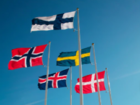
The Nordic Council of Ministers, in 2016, began a program called Nordic Smart Government & Business (NSG&B) with a goal to make real time business data accessible and usable for innovation and growth across the Nordic region in an automatic, consent-based and secure manner. The program began with each country's business registry but has since expanded to 21 government agencies from across the region.
NSG&B was implemented from 2021 to 2024. Collaboration with the private sector was a cornerstone of the program. The numerous pilots and studies conducted met many of the milestones set at the start and identified specific opportunity areas that will be further explored.
Working Groups Established
At the start of the program, a steering group and advisory board were established, along with four technical working groups. The working groups focused on:
Digital business documents. This group established a network for a common digital format for e-Invoices, e-Orders, e-Catalogs, and e-Receipts, to facilitate the interoperability of documents such that a business in one Nordic country could automate trade processes with a company in another Nordic country.
Open accounting and simplified reporting. Financial statements in Denmark, Finland and Sweden report in XBRL format but there are differences in local accounting that complicates data exchange. The working group created a data model using common API definitions to harmonize and digitally exchange financial statement data in structured format while retaining local legal differences.
Work was also conducted on streamlining cross-border financial transactions such as Value Added Tax (VAT) with an aim to minimizing manual accounting tasks. Pilots were conducted that helped to identify successful strategies to enhance digitalization, reduce reporting burdens, and bridge differences in technical standards.
"Born Digital" to assist in the digitalization of companies in the startup, running, and closing phases. Small and medium sized enterprises (SME) face challenges both in understanding their obligations towards public authorities and how to comply efficiently. This program provided access to digital services that can help SMEs identify and comply with legal requirements from the start.
Reliability and quality of data. The Nordic country business registries had created different API standards, which increased the cost of API integration for the third party developers of these integrations making it difficult to have easy access to high quality data. This working group developed a common Nordic semantic model for business information in English. This has been used to create an API solution that offers access to data from registries across the Nordics with standard company data that enables third parties to build services enabling analysis and comparisons of companies across the Nordic region. The semantic model can be leveraged for other applications to further integrate the Nordic countries.
Milestones Reached
The NGS&B had eight milestones on its roadmap. Six of the eight milestones had been met by the end of 2024 with the following results.
The Nordic Advisory board was established.
70% of Nordic SMEs use a digital business system, with varying results across countries. While shares of Nordic SMEs that use any digital business system range between 43-69%, and a bit higher - from 49-73% - for ERP systems, the share per country ranges from 79% in Sweden, around 80% in Finland, and 83% in Iceland.
Sales and purchases can be digitally handled by default however digital management in a compatible format (such as the Peppol network, which is designated as the region’s agreed upon exchange) is not yet widespread.
SMEs can freely choose to move their business data between business systems.
80% of the Nordic business systems have implemented common tools (APIs), so service providers can access an SME’s data with appropriate consent.
80% of the invoices sent in the Nordics are digital.
It is estimated that by 2025, the Nordic SMEs will have saved EUR 500 million by using smart services and real-time data.
It is estimated that by 2027, the Nordic countries will be the most integrated region in the world.
For more details, read Nordic Smart Government & Business, 2021 - 2024 Report





